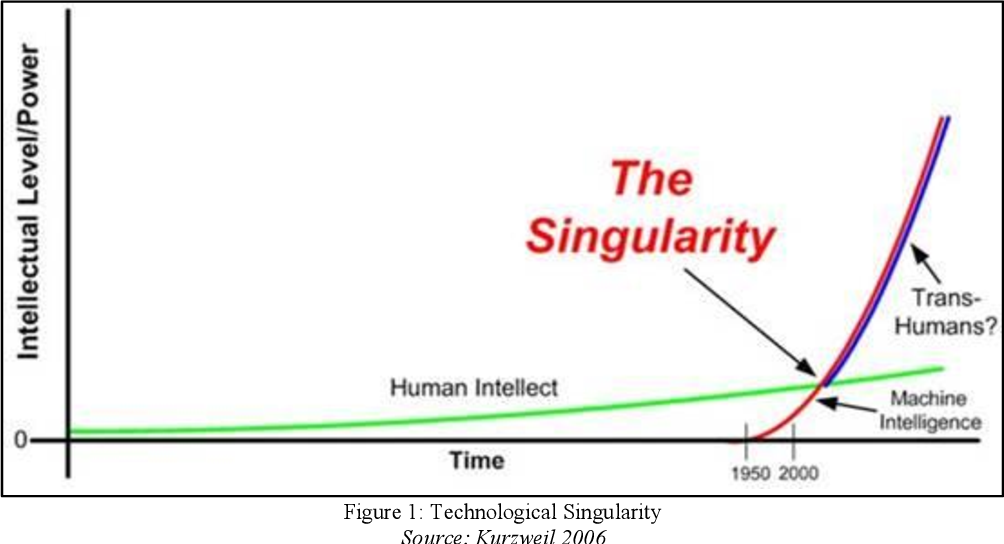In a world that is evolving at an unprecedented pace, religions will need to adapt and address various challenges to remain relevant and meaningful to their followers.
With artificial intelligence (AI) expected to exceed the total collective intelligence of humanity several orders of magnitude by 2050 ---- offering near omniscience to all.Religions will face several challenges from a secular perspective.
Some of these challenges include:
-
Reconciling faith and scientific knowledge: As AI and technology continue to advance our understanding of the universe, religions will need to find ways to integrate new scientific discoveries with their teachings. This may involve reinterpreting sacred texts or revisiting long-held beliefs.
-
Addressing moral and ethical concerns: The rise of AI and its potential impact on society will raise new ethical and moral questions. Religions will need to provide guidance and answers to these questions, helping their followers navigate the complex issues surrounding AI and its implications.
-
Preserving human dignity: As AI becomes more powerful, it is essential that religions emphasize the importance of human dignity and the intrinsic value of every individual. This could involve promoting empathy, compassion, and understanding to counteract potential feelings of insignificance or obsolescence in the face of advanced technology.
-
Fostering community and social cohesion: As AI and technology continue to impact society, religions must work to strengthen communities and promote social cohesion. This can be achieved by fostering a sense of belonging and providing support networks for individuals who may feel isolated or left behind by rapid technological advancements.
-
Maintaining relevance in a highly interconnected world: As AI makes information and knowledge more accessible, religions will need to find ways to maintain their relevance and provide guidance in a world that may become increasingly secular. This could involve embracing dialogue with other belief systems, focusing on core values, and emphasizing the importance of spiritual growth.
-
Navigating the intersection of faith and technology: The development of advanced AI and artificial cognition technology may lead to ethical questions and dilemmas for religious communities.
As AI surpasses human intelligence, there may be debates over the nature of consciousness, the role of AI in decision-making, and the implications for religious teachings about free will, morality, and the divine.
Religious organizations will need to engage in discussions on these topics, adapt their teachings if necessary, and provide guidance to their followers on how to navigate this new reality.
Addressing the potential loss of community: As AI and technology enable more virtual connections, people may increasingly rely on digital platforms for communication and social interaction.
This could result in a decline in physical attendance at religious services and community gatherings.
Religious institutions will need to find creative ways to foster a sense of community and belonging, whether through online platforms or by adapting their traditional practices to better suit the evolving needs of their congregations.
Promoting empathy and compassion in an AI-driven world: As AI becomes more integrated into our daily lives, there may be a growing tendency to rely on technology for decision-making, potentially leading to a devaluation of human emotions and experiences.
Religions can play a crucial role in reminding individuals of the importance of empathy, compassion, and human connection, values that should not be overlooked in favor of purely rational or efficient decision-making.
Encouraging responsible use of technology: Religions can provide ethical guidance on the responsible use of AI and other advanced technologies.
By promoting moral and ethical values, they can encourage individuals to consider the broader implications of their actions and ensure that technology is used for the greater good, rather than simply for personal gain or convenience.
Adapting to changing social norms: As society evolves and becomes more diverse, religions will need to adapt their teachings and practices to remain inclusive and relevant.
This may include reassessing traditional gender roles, embracing LGBTQ+ inclusivity, and engaging in interfaith dialogue to foster understanding and cooperation between different religious communities.
In summary, religions will face numerous challenges as AI and technology continue to advance at a rapid pace.
To remain relevant and provide guidance in this rapidly changing world, they will need to adapt their teachings, foster a sense of community, emphasize core values, and engage in dialogue with other belief systems.
By doing so, they can continue to offer valuable perspectives and support to individuals navigating the complex ethical and social questions that will arise as AI surpasses human intelligence.

